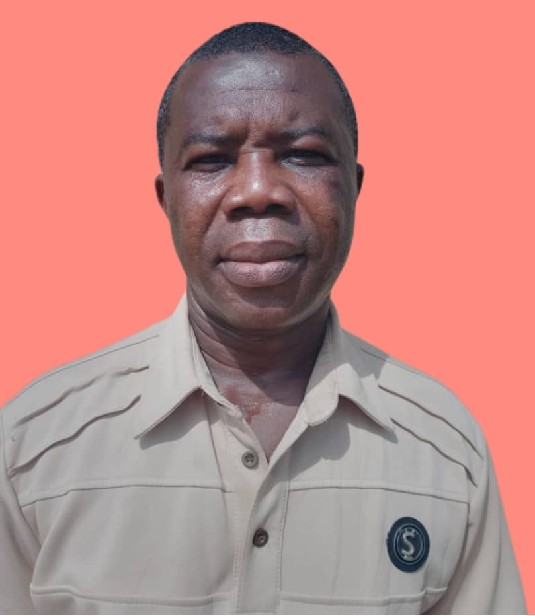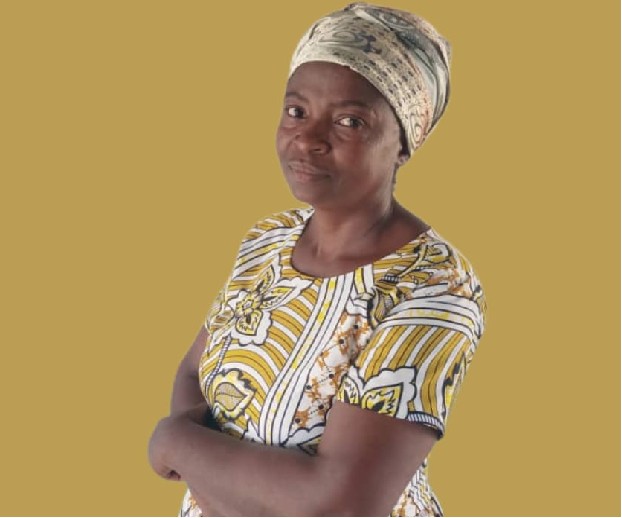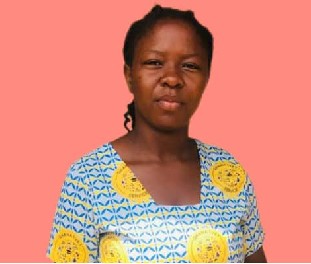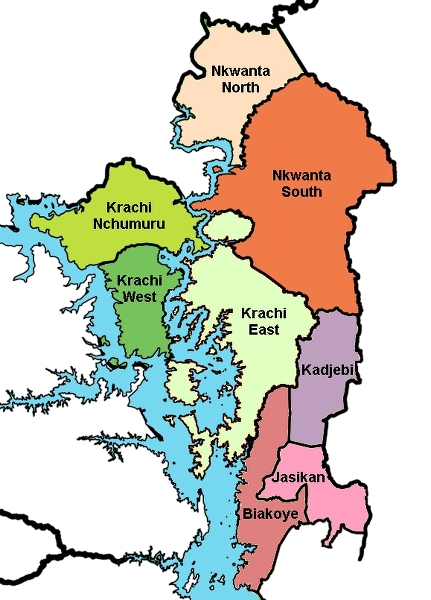DAMBAI TECHNICAL INSTITUTE
Located in the heart of Dambai—the capital of Ghana’s Oti Region—Dambai Technical Institute (DTI) is a forward-thinking institution committed to transforming lives through hands-on, skills-based education. Established in 2017 under the Integrated Community Centre for Employable Skills (ICCES), a unit of the Ministry of Employment and Labour Relations (MELR), DTI serves as a dynamic training ground for young people seeking practical skills and meaningful career paths.
Message from the Principal

Emmanuel Kofi Addo
I welcome you to the official website of Dambai Technical Institute with the greatest optimism. Since our establishment in 2017, the Institute has stood as a beacon of technical and vocational excellence in the heart of Dambai, the capital of Oti Region, situated within the Krachi East Municipal Assembly. We were founded with a clear purpose: to empower the youth of our region and beyond with relevant skills and practical knowledge that will prepare them for meaningful careers and self-sufficiency.
At Dambai Technical Institute, our vision is to become a leading center of technical and vocational training in Ghana, producing skilled, competent, and innovative graduates who will drive national development. We are committed to developing individuals who are not only technically proficient but also entrepreneurial, ethical, and community-minded.
Our mission is to provide high-quality technical and vocational education and training that meets national standards, promotes creativity, and equips trainees with the skills necessary to contribute effectively to society. We strive to bridge the gap between formal education and the practical demands of the job market through hands-on training, industry collaboration, and continuous curriculum development.
Our goal is to nurture a generation of skilled professionals who can either secure gainful employment or create their own businesses. We aim to reduce unemployment by equipping our trainees with employable and entrepreneurial skills, particularly in the fields of fashion design, carpentry, welding, and other vital trades.
Despite the numerous challenges faced over the years—including limited infrastructure and resources—the Institute has remained resilient. We have successfully graduated over 64 trainees who continue to make us proud. Some have gone on to establish their own thriving businesses, while others are actively contributing to the fashion industry or pursuing further studies to enhance their skills and qualifications.
Looking to the future, we are excited about the prospects of growth and innovation. Our plans include expanding our academic programs, improving our facilities, and fostering partnerships with industries and stakeholders to enhance the learning experience. We are committed to building an institution that not only educates but also inspires transformation in the lives of our students and the communities they serve.
Thank you for visiting our website. We invite you to explore more about our programs, achievements, and opportunities. Together, let us shape a future of excellence and impact.
Warm regards,
Management Team

EMMANUEL KOFI ADDO
Principal

JULIUS NYADEE
HOD, BUILDING CONSTRUCTION TECHNOLOGY

WISE NUKPETSI
HOD, GENERIC

VITALIS DORZIE
HOD, WELDING AND FABRICATION

EMMANUEL DONKOR
HOD, ELECTRICAL TECHNOLOGY

PEACE AFUDOME
HOD, FASHION DESIGN TECHNOLOGY

WILLIAMS BRUKUM
BOYS PREFECT

HAPPY BIGNUNFEA
GIRLS PREFECT
Welcome to Dambai Technical Institute (DTI)
Motto: Making You Employable
Located in the heart of Dambai—the capital of Ghana’s Oti Region—Dambai Technical Institute (DTI) is a forward-thinking institution committed to transforming lives through hands-on, skills-based education. Established in 2017 under the Integrated Community Centre for Employable Skills (ICCES), a unit of the Ministry of Employment and Labour Relations (MELR), DTI serves as a dynamic training ground for young people seeking practical skills and meaningful career paths.
We operate as a day institution, offering competency-based training in various technical and vocational disciplines. From Electrical Installation to Fashion and Dressmaking, our programs are designed to meet the growing demands of industry and entrepreneurship.
At DTI, we believe that education should lead to opportunity. That’s why we focus on empowering students with job-ready skills that foster self-reliance and sustainable livelihoods. With a dedicated team of instructors and a growing student body, we are proud to be shaping the future of work in the Oti Region and beyond.
Vision:
To become a leading technical and vocational institute in Ghana, producing innovative, skilled, and employable graduates for national and global impact.
Mission:
To deliver quality, inclusive, and practical education through modern methods, expert instruction, and industry-aligned programs that prepare learners for both employment and entrepreneurship.
Join DTI today—where skills meet opportunity.
Let us make you employable!
📍 Address: P. O. Box 1, Dambai, Oti Region, Ghana
📞 Contact: 024 791 5668
At Dambai Technical Institute (DTI), our academic programs are designed to equip students with relevant, hands-on skills for the job market and entrepreneurship. We offer competency-based training in key vocational and technical fields that align with Ghana's development needs.
Programs Offered:
Electrical Installation
Secretarial Studies
Textile Design and Production
Carpentry and Joinery
Fashion and Dressmaking
Building and Construction
Each program combines theory with practical sessions to ensure students graduate with the skills and confidence to excel in their chosen careers. Our training follows national curricula and emphasizes quality, discipline, and innovation.
Facilities & Resources
DTI is committed to creating a conducive environment for learning and skill development. While we continue to expand our infrastructure, our current facilities include:
Specialized Workshops for electricals, carpentry, textiles, and dressmaking
Classrooms designed for both theory and demonstration
Administrative Block for staff and academic services
Access to basic tools and materials for hands-on training
Open spaces for project work and practical demonstrations
We are constantly working to improve our training resources through partnerships, donations, and government support to meet the evolving demands of vocational education.
Life at DTI goes beyond the classroom. Our small, vibrant community of learners is encouraged to participate in a variety of activities that promote teamwork, creativity, and personal growth.
Student Life Highlights:
Group projects and exhibitions to showcase skills
Community outreach programs that let students apply their training
Informal clubs and peer learning groups
Support from voluntary staff who mentor and assist students
Career guidance and entrepreneurship motivation
We foster a culture of inclusivity, hard work, and respect—ensuring every student feels valued and supported throughout their training journey.
Admissions to Dambai Technical Institute are open to all young people with a passion for learning practical skills. We welcome applicants from all backgrounds who are committed to personal and professional growth.
Admission Process:
Complete an application form (available at the school or via request)
Attend an orientation or interview session (if required)
Get enrolled in your preferred program based on availability and interest
We operate a day-only system and our current student population reflects a growing interest in vocational careers. Whether you're looking to start a career, switch fields, or build a business, DTI offers the foundation you need.
Join us — where skills meet opportunity. Let us make you employable!
Contact Us
📍 Address:
Dambai Technical Institute
P. O. Box 1, Dambai
Oti Region, Ghana
📞 Phone: 024 791 5668















